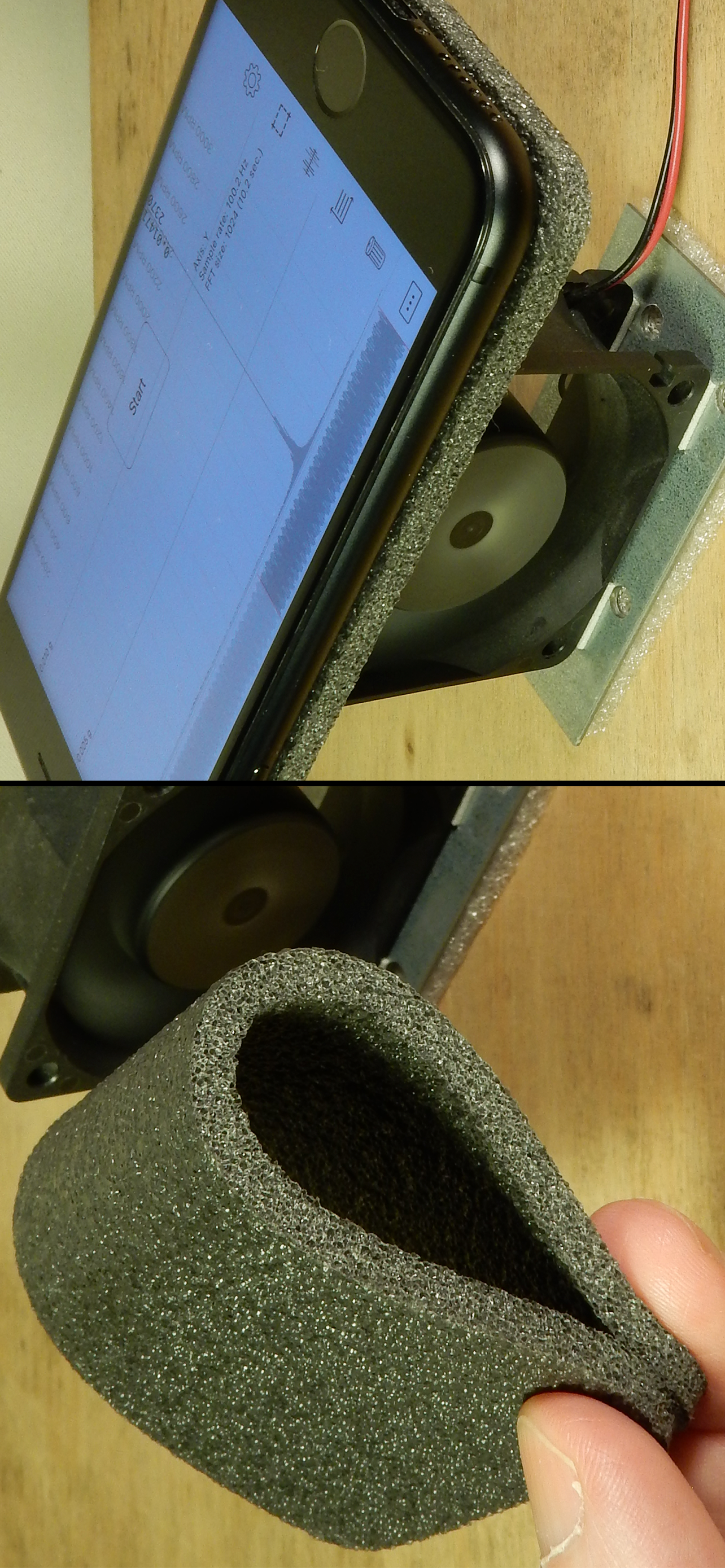You’ve hit your search limit
Start your free trial to keep exploring full traffic and performance insights.
Get Started- Home
- Free App Analytics
- Vibration analysis
Vibration analysis app analytics for January 10
Vibration analysis
- Dmitriy Kharutskiy
- Apple App Store
- Free
- Utilities
The application analyzes the data from the phone's accelerometer and builds a vibration spectrum. This allows the evaluation of not only the strength and frequency of the vibration, but also the speed of rotation of various mechanisms: fans, motors, various rotating components; since the vibration frequency often (but not always) coincides with the frequency of rotation. The application will be useful in determining the quality of fans and motors, in determining whether their actual parameters coincide with the ones declared by the manufacturer, it will find its uses in monitoring of malfunctions (e.g. in bearings) or while testing the quality of assembly and balancing of the homemade mechanisms with rotating parts.
Do not expose your iPhone to an excessive vibration, as it may break. If the analyzed vibration is too strong, use a foam material pad, or put your iPhone at a distance where the force of the vibration is not dangerous to your device. In addition to decreasing vibration for the iPhone, a foam pad improves contact between the iPhone and the vibrating part, which makes the transmission of vibration more accurate and produces better results.
BE SURE TO READ THE EXAMPLES OF THE VIBRATION SPECTRUM ANALYSIS AT THE APPLICATION WEB SITE (usefulmobileapps.com).
Features of the full version of the application:
• The choice of units of measurement. X-axis: Hz or RPM. Y-axis: g, m/s², ft/s², mm/s, in/s (ips), mm, mil, dB(A), dB(V).
• FFT size (for built-in accelerometer): 64, 128, 256, 512, 1024, 2048, 4096 (data collection time from 0.64 sec. to 40 sec.). For an accelerometer connected to the headphone jack FFT size from 2048 to 131072. For Bluetooth-accelerometer FFT size from 512 to 32768.
• Linear and logarithmic frequency scale.
• Linear frequency scale with maximum details (there is a choice for the displayed frequency range).
• Peak frequency detection.
• Values of any point (for frequency scale and sound wave (at maximum detail)).
• Selecting which axis of the accelerometer is to collect data.
• Octave bands (1/1,1/3,1/6,1/12).
• Window functions (Blackman, Hamming, Hann (Hanning), Blackman–Nuttall, Gaussian, Flat top).
• Peak hold.
• Exponential spectrum averaging.
• Taking a screenshot by lightly touching the screen.
• Root mean square (RMS, for vibration) or average value (AVG, for absolute values) for vibration wave. Values are calculated only for data displayed on the screen.
• Calibration of the built-in accelerometer. Need EXCLUSIVELY for measuring absolute acceleration values (gravitational acceleration). To activate the settings, turn on the "Vibration wave" mode and turn off the "Only fluctuations" mode. The parameters of the accelerometer depend on the temperature and voltage of the battery, and may change over time. To obtain stable values, the accelerometer should work for several minutes.
• Saving the measurement results in the application. Files with saved data (SavedData_[date]_[time].txt) can be copied to a desktop/laptop computer or transferred to another iPhone using iTunes.
• Export data to a text ("Y=[y1 y2... yn]", "y1;y2;... yn", "x1;y1\nx2;y2;...") or WAV file. Number of points is adjusted via "FFT size". To export octaves, use "x1;y1\nx2;y2;...".
• Accelerometer connects to the headphone jack (measurement range from 5 Hz to 24000 Hz).
• A stroboscope for an external accelerometer (the feature was proposed by Todd French from Los Angeles, California).
• Bluetooth accelerometer.
When converting acceleration into speed or displacement, at 0-5 Hz frequencies noise starts prevailing over vibration peaks, which is why such frequencies are disregarded when doing the conversion. Should vibration frequency exceed 50 Hz, the peak will be recorded at an incorrect frequency, and hence speed or displacement will not be calculated correctly. Unrealistically high speed or large displacement may be a sign of this kind of false frequency.

Store Rank
The Store Rank is based on multiple parameters set by Google and Apple.
All Categories in
United States--
Utilities in
United States--
Create an account to see avg.monthly downloadsContact us
Vibration analysis Ranking Stats Over Time
Similarweb's Usage Rank & Apple App Store Rank for Vibration analysis
Rank
No Data Available
Vibration analysis Ranking by Country
Counties in which Vibration analysis has the highest ranking in its main categories
No Data to Display
Top Competitors & Alternative Apps
Apps with a high probability of being used by the same users, from the same store.
Vibration Meter, seismograph
ExaMobile S.A.
Smart Vibration Meter・Detector
Zipo Apps Ltd.
Vibration meter - Seismometer
MYSTIC MOBILE APPS LLC
Seismometer+
Unicom TOV
January 10, 2026